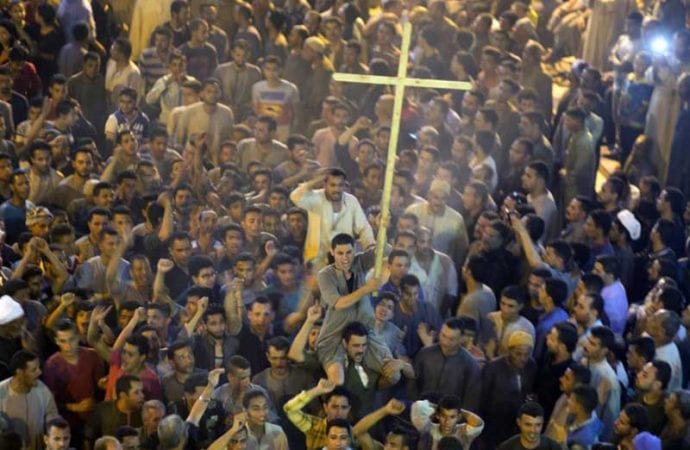The last body of the 21 people beheaded by ISIS on a Libyan beach in 2015 will soon be reunited with the rest of the 20 Coptic Christian martyrs in a newly built shrine honoring their memory in one of most prominent hotbeds of Christian persecution in the country.
Libya’s ambassador to Egypt has agreed to the transfer of the body, marking the latest development in a saga that horrified the world with the release of a video by the Islamic State in February 2015 showing the beheading of 21 men - 20 of whom were Coptic Christians from Egypt, along with a Ghanaian Christian companion - handcuffed and dressed as prisoners in orange jumpsuits.
As they were killed, the men were said to be chanting Christian hymns and praying to Jesus.
After their bodies were discovered in 2017, the 20 Egyptians were transferred back home in 2018. Now, the Libyan government has agreed to transfer the body of the Ghanaian, Matthew Ayariga, which has until now gone unclaimed, to the Martyrs of Faith and Homeland Church, built as a shrine to the 21 men who sacrificed their lives for the Christian faith.
News of the transfer agreement was shared by Father Abi Fanus Unan, who serves at the shrine, in a briefing last week to a group of Catholic journalists and educators, including Crux, sponsored by the Philos Project, an organization dedicated to “promoting positive Christian engagement in the Middle East.”
The Coptic Orthodox priest said that he met with the Libyan ambassador two months ago at the request of Bishop Bevnotious, the Coptic Orthodox Bishop of Samalout, but said that no date has been set for the transfer.
The newly opened shrine to the 21 martyrs was built by the Armed Forces under Egyptian President Abdel Fattah el-Sisi and contains their remains under the main altar, as well as individual coffins for each of the men, along with remnants of their faded and bloodstained jump suits.
Pope Tawadros II, head of the Coptic Orthodox Church, has already declared the men to be saints and their feast day on the Orthodox calendar is on February 15, the feast day of the Presentation of Jesus at the Temple.
Pope Francis has spoken of the 21 martyrs on multiple occasions since their gruesome death, writing to Tawdros to say that “today more than ever we are united by the ecumenism of blood, which further encourages us on the path towards peace and reconciliation.”
Although the Catholic Church has not officially recognized the men as saints, Francis has repeatedly referred to the men as martyrs.
“Their only words were: ‘Jesus, help me!’ They were killed simply for the fact that they were Christians,” he said in 2015. “The blood of our Christian brothers and sisters is a testimony which cries out to be heard. It makes no difference whether they be Catholics, Orthodox, Copts or Protestants. They are Christians!”
“The martyrs belong to all Christians,” he added.
In a separate briefing last week, the Coptic Catholic Patriarch of Alexandria, Ibrahim Isaac Sidrak, referred to the 21 martyrs as “exemplary Christians.”
On hand for the Philos Project briefing at the shrine were family members for 13 of the martyrs, who repeatedly described the deaths of their sons, fathers, and brothers as an “honor” and a “joy.”
Similarly, in an interview with Crux earlier this year, author Martin Mosebach, whose recent book, The 21: A Journey into the Land of Coptic Martyrs, described his experience with their family members as one that would astonish much of the western world.
“I found a completely different point of view of martyrdom. No lamentation, no mourning, no pity, but, instead, pride and happiness. This was not seen as an injustice or an incident that should not have happened,” he said. “These were people with very simple theologies, but it was a real theology.”
While the video footage of the deaths of the 21 Christians stunned much of the world, many Coptic Christians have since lamented that the events seem to have been quickly forgotten - though in the rural village of Al Our, the presence of their family members seemed to be a plea for both remembrance and continued attention to the ongoing realities of Christians in the region.
“It is an honor for me,” the father of Yousef Shokry Younan told Crux, in describing his first reaction learning of the death of his 24-year-old son.
The father of Mena Fayez Aziz, also killed at age 24, concurred.
“It is a joy for me,” he said, “and a gift to the entire world to know what can happen with this witness for Christ.”

